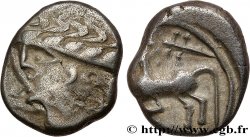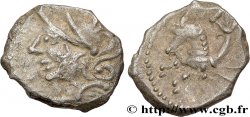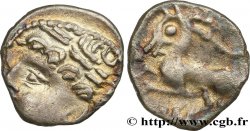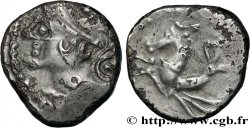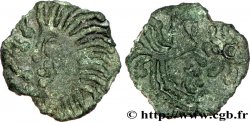Obverse
Obverse legend : ANÉPIGRAPHE.
Obverse description : Tête casquée à gauche.
Reverse
Reverse legend : ANÉPIGRAPHE.
Reverse description : Hippocampe à gauche ; grènetis.
Commentary
Historical background
GALLIA - ALLOBROGES (Dauphiné area)
(2nd - 1st century BC)
People of the Alps settled in most of Savoie and Dauphiné. Surrounded by the Séquanes, the Ambarres and the Helvetii to the north and east, by the Voconces to the south and the Segusiaves and the Helvians to the west on the right bank of the Rhône, it was one of the most powerful of Gaul. They controlled the river traffic on the Rhone at the entrance to Lake Geneva, in Geneva (Genua), opposite the Helvetii and in Vienna (Vienna), their oppidum. Established for a long time in Savoy and Dauphiné, their origin seems foreign according to their name and it is possible that they settled in Gaul in the 4th or 3rd century BC.. -VS. It was partly on their territory that Hannibal tried to cross the Alps in 218 BC.. -VS. where they tried to oppose its passage. At the end of the 2nd century BC, they joined the coalition formed by the Arverni against the advance of the Romans in the Rhone Valley. Allies of Bituit (Bituitos), king of Arvernes, they were defeated in 121 BC. -VS. by Cneius Domitius and their territory was incorporated into the new province of Narbonnaise. The Cimbri and the Teutons devastated part of their territory at the end of the 1st century BC.. -VS. So they called the Romans to help. Then it was the turn of the Helvetii in 58 BC.. -VS. when the latter tried to cross the territory of the Allobroges in order to reach Saintes. The province being poorly administered by a procurator, the Allobroges revolted against Roman rule in 61 BC.. -VS. but this revolt was crushed the following year. The Allobroges did not participate in the campaign of 52 BC. -VS. and remained loyal to the Romans despite having received secret embassies and offers of alliance from Vercingetorix. Polybius (H. III, 49-51); Caesar (BG. 1, 6, 10, 11, 14, 28, 44; III, 1, 6; VII, 64, 65); Livy (HR. XXI, 31); Strabo (G. IV, 1). Kruta: 71, 290, 300-302, 308-310, 338, 404, 860.









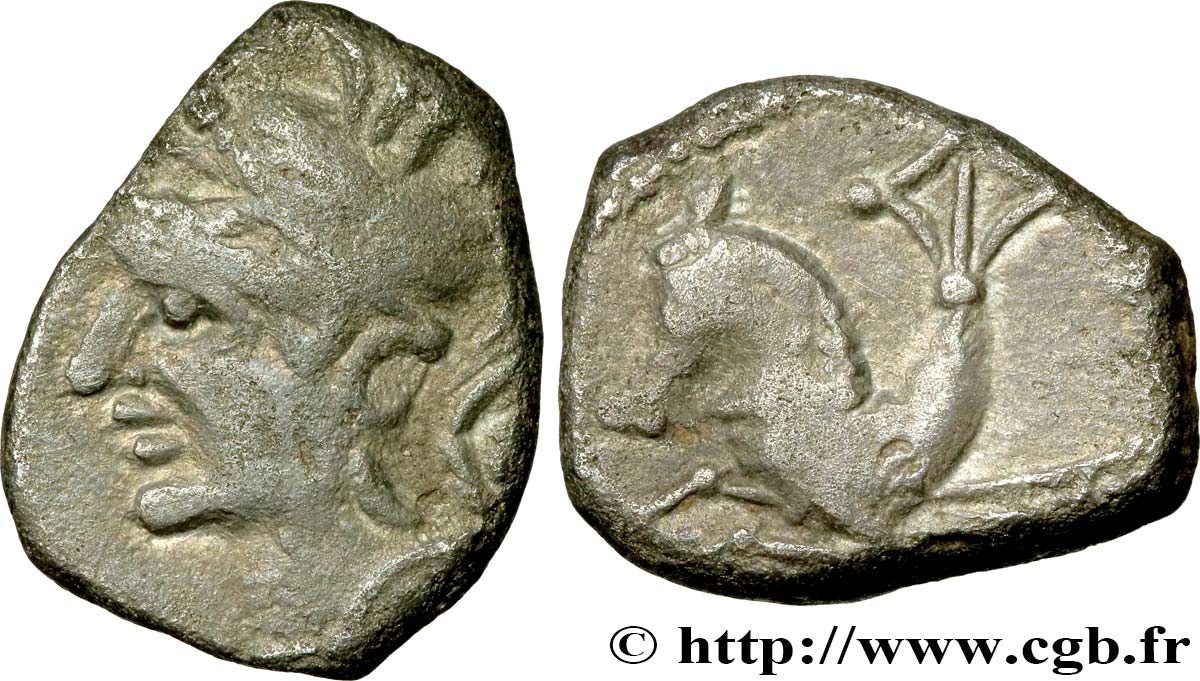
 Report a mistake
Report a mistake Print the page
Print the page Share my selection
Share my selection Ask a question
Ask a question Consign / sell
Consign / sell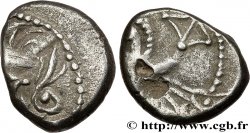
 Full data
Full data
